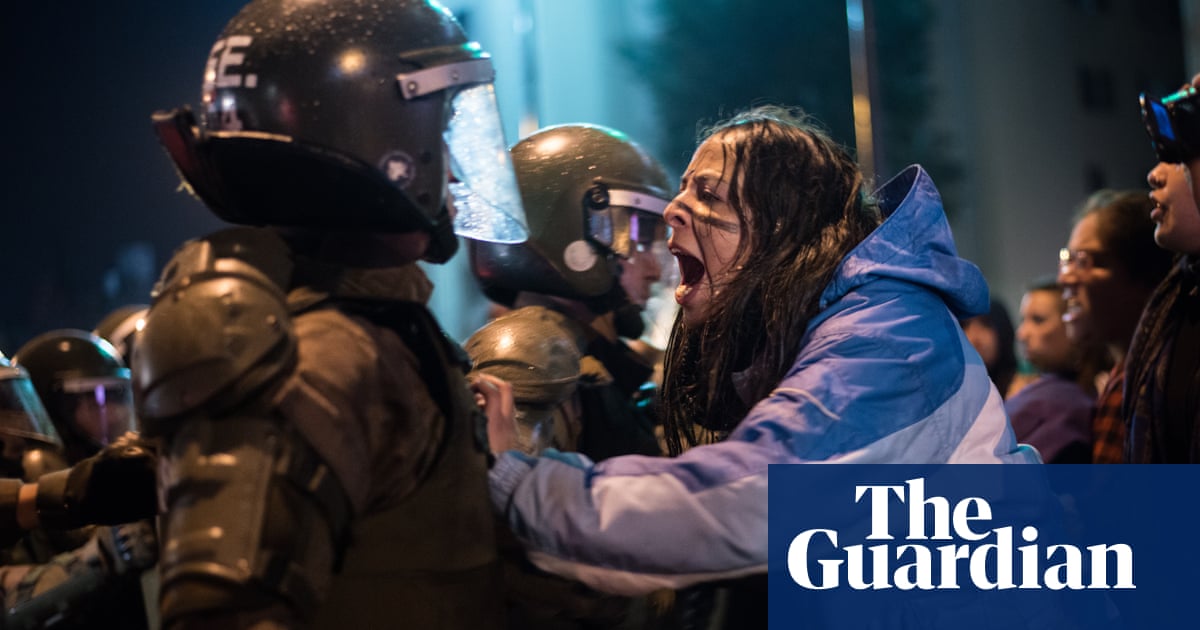
The Intergovernmental Panel on Climate Change (IPCC) has achieved many successes. In its 35 years, the UN body has become the most authoritative global source of knowledge on climate breakdown. Politicians, policymakers and social movements from around the world draw on its reports and data to frame the problem of the climate emergency and to envisage solutions.
But as climate politics has become more complex, more diverse and more pressing, the IPCC is increasingly called upon to fulfil roles not envisaged at its creation – and to which it is not well suited. As it moves into its seventh assessment cycle and with the election of a new chair, the British climate scientist Prof Jim Skea, the time is right for a reassessment of its role and function.
The next decade will be crucial in the fight against climate breakdown, with the IPCC calling for “transformative change”. Future debates are likely to be less about its causes and extent, and more about what mitigations and solutions are socially feasible and desirable. As the conversation centres more closely on policy, a divide has emerged between those who believe the IPCC can continue to act as a neutral, consensus-based body, and those who think it should incorporate more diverse, even contradictory views and values, or even begin to advocate for specific solutions.
Thirty leading scholars who study the IPCC recently laid out the case for institutional reform in the journal Nature Climate Change. They looked at three possible scenarios for the organisation in the future.
Unlike a typical scientific research enterprise, the IPCC relies on an army of volunteer experts from across the world, nominated by governments and observer organisations, to collect, assess and synthesise the global body of climate knowledge. It is monolithic in scope, producing vast assessment reports running to thousands of pages, along with synthesis reports and summaries for policymakers, on five- to six-year cycles.
The IPCC has maintained its relevance and authority by adhering to core institutional pillars: policy neutrality, diverse participation, consensus-building and governmental ownership – so its final published assessments have been reviewed and ultimately agreed by all governments. The organisation is mandated to be “policy-relevant but not policy-prescriptive”, meaning that it must not favour one single policy or set of policy responses to climate breakdown over another. It is intended to be – as much as is possible – a neutral guide to the possible policies to take up.
While the IPCC may not favour any one policy, the makeup of the participants can have a large effect on which policies are considered, and how they are framed. Although it has improved the diversity of its contributors in recent cycles, scientists from the global south, social scientists and researchers in the humanities, indigenous voices and alternate knowledge systems make up a minority of the assessment participants. When solutions are proposed without a truly representative set of voices and values, it risks perpetuating, or even exacerbating, existing exclusions and injustices.
One way forward for the IPCC would be simply to make minor reforms that adapt to the current political reality. It may, for example, claim a stronger commitment to including social sciences and indigenous voices in its assessments, but would keep the same organisation structure with its existing working groups, and repeat the current cycle of assessment reports. This “business as usual” approach may maintain the IPCC’s credibility among some governments and stakeholders, but it could well undermine its policy relevance as it perpetuates uneven participation and is unresponsive to the increasingly rapid needs of policymakers.
Alternatively, the IPCC could work to greatly increase and intensify its diversity, drawing back from its commitment to consensus, which often obscures dissent, and instead recognise the need for plural voices and values. This may involve incorporating a wider set of scientific disciplines and knowledge systems into the IPCC assessment process, which in turn means vastly broadening participation. The challenge here lies in shifting away from existing notions – both within the IPCC and in the governments that approve the reports – of what constitutes legitimate or valid knowledge. It would make the reports less able to claim a single, consensus-based authoritative voice, but it would more accurately reflect the many stakeholders and voices that contribute to thinking on climate breakdown.
Lastly, and perhaps most difficult to realise, the IPCC could embrace a wholly new role as an advocate for change. It would engage with a wider range of stakeholders, social movements and Indigenous groups, in a more rapid and responsive way, as a catalyst for change. The stronger policy recommendations demanded of the IPCC would entail partially abandoning its commitment to neutrality. This is challenging because this scenario recognises the ultimately political nature of what the IPCC does, and therefore requires governments and experts alike to grapple explicitly with the politics of climate breakdown.
Each scenario of the IPCC’s future contains different advantages and potential pitfalls. In the context of continuing climate-related disasters, the IPCC must first look to see whether it remains fit for purpose, whether it serves policy and public needs, and whether it is receptive to meeting new challenges rather than resting on past successes. Whatever future the IPCC choses, it will face difficulties in supporting the much wider variety of actors who now look to it to provide a knowledge base for transforming society.
Adam Standring is a Marie Skłodowska-Curie fellow at De Montfort University and an associated researcher at the Centre for Environmental and Sustainability Social Science at Örebro University, Sweden












